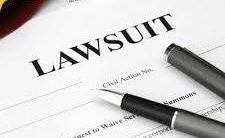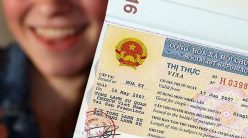For the return of the petition
Clause 1, Article 192 of the 2015 Civil Code supplements and clearly stipulates a number of cases in which lawsuit petitions are returned:
- The petitioner does not have the right to initiate a lawsuit (i.e. the petitioner is not to claim protection of his/her legitimate rights and interests and does not belong to agencies, organizations or individuals as prescribed in Article 187 of the CPC 2015). .
- There are not enough conditions to initiate a lawsuit (ie, the petitioner has filed a lawsuit to the Court when one of the conditions for initiating a lawsuit is still lacking as prescribed by law).
- The plaintiff does not amend or supplement the lawsuit petition at the request of the judge. Specifically, in case the plaintiff does not fully and specifically write down the contents of the lawsuit petition as prescribed in Article 189 of the Civil Code 2015 or incorrectly writes the name and address of the defendant, person with interests and obligations. If the case is not corrected or supplemented at the request of the judge, the court will return the lawsuit petition.
In particular, the 2015 Civil Code has added the case that in the petition, the petitioner has fully and correctly recorded the address of the place of residence of the defendant, the person with related interests and obligations but they do not have a place of residence. stable, often change the place of residence, head office without notifying the new address to the competent agency or person in accordance with the law on residence, making the petitioner unaware of it for the purpose of concealment. address, evading obligations towards the plaintiff, the judge does not return the lawsuit petition but determines that the defendant and persons with related interests and obligations deliberately concealed their addresses and proceeded to accept and settle the lawsuit. according to general procedure.
Clause 2, Article 192 of the 2015 Civil Code stipulates: “When returning the lawsuit petition and accompanying documents and evidences to the plaintiff, the judge must make a written statement clearly stating the reason for returning the petition and send it to the Institute at the same time. supervision at the same level” . At the same time, the Civil Code 2015 adds the content “The lawsuit petition and documents and evidences returned by the judge to the plaintiff must be copied and stored at the court to serve as a basis for settlement of complaints and petitions when available. request”.
For the return of the claim form
The cases in which the Court returns the petition are specified in Clause 1, Article 364 of the CPC 2015 (4).
When inspecting the return of lawsuit petitions or court petitions, if violations are found, according to the provisions of Article 194 of the Civil Code 2015, within 10 days from the date of receipt of the written return of petitions. lawsuits, the procuracies have the right to petition the courts that have returned the lawsuit petitions or petitions. Compared with the 2004 Civil Code, the time limit for the Procuracy to supervise the return of lawsuit petitions and petitions is longer (Article 170 of the 2004 Civil Code stipulates three working days).
Immediately after receiving a complaint or recommendation about the return of the lawsuit petition, the chief justice of the court must assign another judge to consider and settle the petition. Within 05 working days from the date of assignment, the assigned judge must open a meeting to consider and settle complaints and recommendations and issue decisions to respond to complaints and recommendations. The meeting to consider and settle complaints and recommendations shall be attended by representatives of the procuracies of the same level and the complaining involved parties; in case the involved parties are absent, the judge shall still conduct the meeting. However, the 2015 Civil Code does not stipulate the absence of the Procurator, how should it be handled?
Within 10 days from the date of receipt of the decision to respond to the complaint or recommendation on the return of the lawsuit petition or petition of the judge, the procuracies shall have the right to make a second petition to the chief justice of the above court. one-level direct review and resolution. Within 10 days from the date of receipt of the petition on the return of the lawsuit petition, the chief justice of the immediate superior court must issue a settlement decision.
When there are grounds to determine that the settlement decision of the chief justice of the immediate superior court has violated the law in the settlement of complaints or petitions for the return of lawsuit petitions or petitions, within 10 days From the date of receipt of the decision, the Procuracy has the right to propose to the Chief Justice of the Superior People’s Court if the appealed decision is made by the Chief Justice of the provincial People’s Court or the Chief Justice of the Court. The Supreme People’s Court, if a decision is appealed or petitioned against, shall be made by the Chief Justice of the Supreme People’s Court. Within 10 days after receiving the Procuracy’s recommendation, the Chief Justice must settle it. The decision of the Chief Justice is final.
In case the Court fails to send or is late in sending the notice of acceptance or the written return of the lawsuit petition or petition to the Procuracy, or the content and form of the notice is not in accordance with the provisions of law, the Procuracy has the right to request or petition the Court to remedy the violation.
With the above provisions, in order to ensure strict control of the return of lawsuit petitions and requests of the Court, the Procuracy needs to assign procurators to participate fully in meetings to ensure supervision. rigid; report to the superior procuracies in case of petitioning the chief justice of a higher court for settlement. Before participating in a meeting to settle complaints and recommendations, the procurator should prepare his or her opinions and content to be said at the meeting.
In addition to inspecting the notification of acceptance and return of lawsuit petitions and requests of the Court for each civil case and matter, the Procuracy should also coordinate with the Court in comparing each month. data and books to detect notices of acceptance and return of lawsuit petitions and petitions that the Court has not sent to the Procuracy. At the same time, through that, we also know the number of cases and cases that the Court has accepted and settled in a month, must ensure the settlement within the prescribed time limit, and the cases and matters that have been resolved must send full judgments and decisions. sufficient and timely for the Procuracy.
Source: According to kiemsat.vn
For support and advice on Business, Investment, Intellectual Property, Tax,… in the best way, please contact us with the following information:
DHP LAW
Address: L4-09.OT06 Landmark 4 Building Vinhomes Central Park, 720A Dien Bien Phu, Ward 22, Binh Thanh District, Ho Chi Minh City








